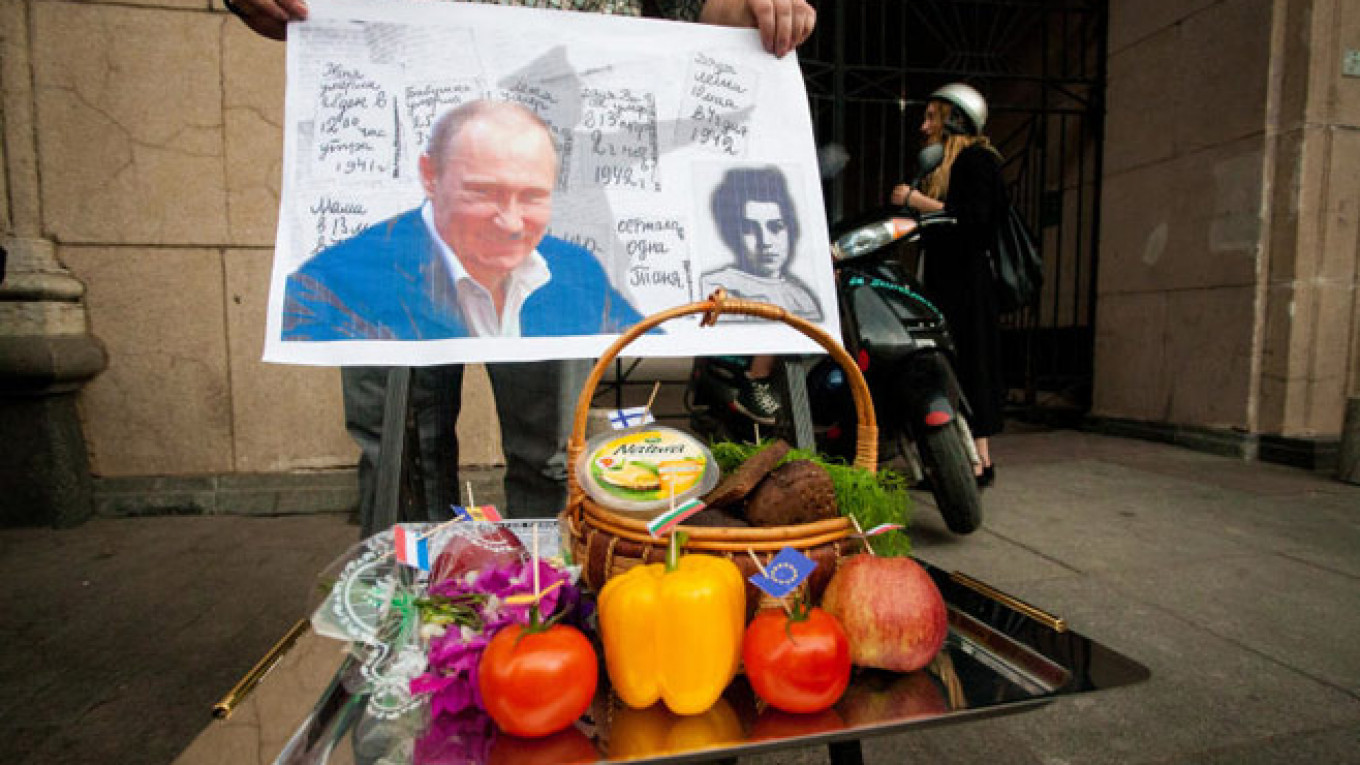From the outset, the import substitution campaign was a simple story about rubles and percentages. Now officials and ordinary Russians are beginning to understand that.
At a recent government commission meeting, Prime Minister Dmitry Medvedev urged officials not to take the idea of import substitution to absurd lengths. He said it is not necessary to try to replace everything coming into this country, and that it is better to focus on several key segments. However, for some reason Medvedev was not suggesting that the policy of import substitution is itself absurd — only the fact that lobbyists in various sectors and regions use that policy as a pretext for requesting money and other benefits.
Trade and Industry Minister Denis Manturov told meeting participants that Russian medicines, electronics and biotechnology would eventually compete successfully on the world market if the Industrial Development Fund would continue to finance those sectors in 2016. Agriculture Minister Alexander Tkachyov reported on how much money that sector needs to compensate for previously imported milk, fruits and vegetables. And each of the governors present detailed the cost of the import substitution plan they were instructed to prepare for their respective regions.
The governors are trying to use Moscow's political stance as a means for squeezing more funds from the federal budget — although there are no guarantees that the money will get used as stated or to solve pressing problems. In reality, there is little room for Russian industry to grow as a result of import substitution. According to regional studies specialist Natalya Zubarevich, unused manufacturing capacity remains low and is unlikely to grow now that investment is down 7 percent since 2014.
It is not so simple for Russia's oil and gas sectors to find substitutes for the import of advanced equipment that is no longer available due to Western sanctions.
A government analytical center wrote in August that the food embargo had led to higher prices and lower quality products. Competitiveness suffers from quotas, the permit process, stiff criteria for government support, the limited access to and capacity of the transportation system, and so on.
However, the authorities must exercise caution when speaking about it so as not to alarm the population. Medvedev lamented on Saturday regarding the results of a study by consumer watchdog Roskomnadzor of 100 samples across the country that found that 78 percent of all cheese in Russia illegally uses palm oil in place of milk to cut costs. A survey the watchdog conducted from January to September found that 25.3 percent of all milk products are "counterfeit," although the Agriculture Minister claims the actual figure is 10-15 percent lower.
The government's role is becoming reduced to calculating which percentages are acceptable — for governors, agriculture, the oil industry, citizens and so on. Juggling all those interests and numbers can get tricky.
In fact, this whole import substitution business has become a rather thankless line of work, such that officials might begin wondering whether it is worth all the trouble.
By the way, the Russian people also have their own "percentages." The Levada Center reported a significant drop over the past year in the number of citizens supporting import restrictions on automobiles — from 49 percent to 31 percent, on computers — from 46 percent to 29 percent, on medicines — from 41 percent to 28 percent, and on perfume — from 65 percent to 47 percent. Sure, war is important, but it is nice to smell of Chanel.
Pavel Aptekar is a historian and commentator for Vedomosti. Andrei Sinitsyn is a correspondent and op-ed contributor for Vedomosti. This comment appeared in Vedomosti.
A Message from The Moscow Times:
Dear readers,
We are facing unprecedented challenges. Russia's Prosecutor General's Office has designated The Moscow Times as an "undesirable" organization, criminalizing our work and putting our staff at risk of prosecution. This follows our earlier unjust labeling as a "foreign agent."
These actions are direct attempts to silence independent journalism in Russia. The authorities claim our work "discredits the decisions of the Russian leadership." We see things differently: we strive to provide accurate, unbiased reporting on Russia.
We, the journalists of The Moscow Times, refuse to be silenced. But to continue our work, we need your help.
Your support, no matter how small, makes a world of difference. If you can, please support us monthly starting from just $2. It's quick to set up, and every contribution makes a significant impact.
By supporting The Moscow Times, you're defending open, independent journalism in the face of repression. Thank you for standing with us.
Remind me later.


